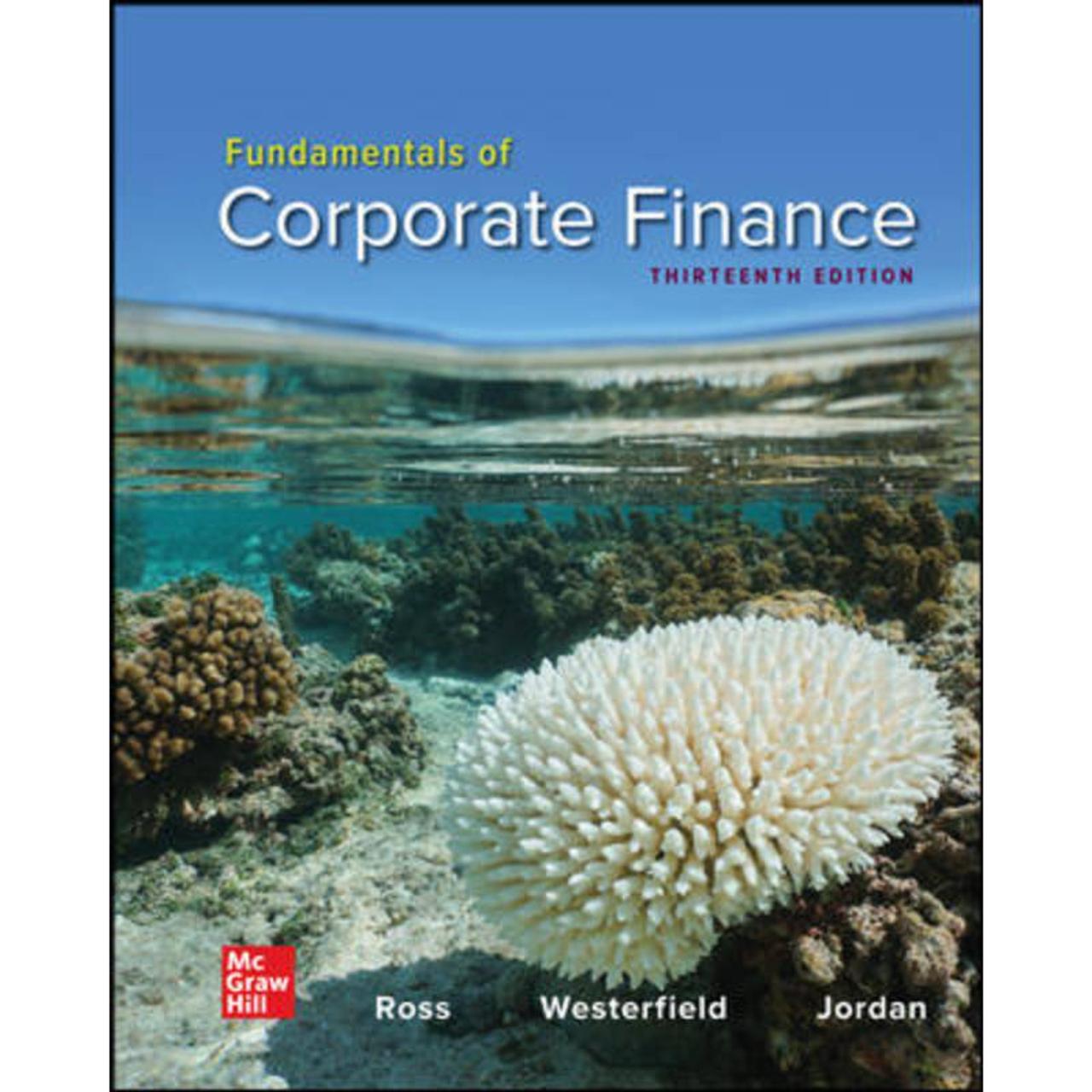Corporate finance ross 13th edition – Ross’s Corporate Finance, 13th Edition, is the definitive guide to the intricate world of corporate finance. With its unparalleled clarity and rigor, this seminal work empowers students and practitioners alike to navigate the complexities of financial decision-making, equipping them with the knowledge and tools to drive organizational success.
This updated edition seamlessly integrates contemporary developments and best practices, ensuring its continued relevance in the ever-evolving financial landscape. Prepare to embark on an immersive journey through the foundations, principles, and practical applications of corporate finance, unlocking a deeper understanding of this critical discipline.
1. Introduction

The 13th edition of Corporate Finance by Ross provides a comprehensive overview of the principles and practices of corporate finance. This edition has been updated to reflect the latest developments in the field, including the impact of the COVID-19 pandemic on financial markets and institutions.
Key updates in this edition include:
- New chapters on financial technology and sustainable finance
- Expanded coverage of topics such as capital budgeting, cost of capital, and dividend policy
- Updated case studies and examples throughout the text
2. Foundations of Corporate Finance

Corporate finance is the area of finance that deals with the sources of funding, and the capital structure of corporations, the actions that managers take to increase the value of the firm to the shareholders, and the tools and analysis used to allocate financial resources.
Role of Financial Markets and Institutions
Financial markets are where buyers and sellers of financial assets come together to trade. Financial institutions are intermediaries that facilitate the flow of funds between savers and borrowers.
Types of Financial Instruments, Corporate finance ross 13th edition
There are many different types of financial instruments, including stocks, bonds, and derivatives. Each type of instrument has its own unique characteristics and risks.
3. Capital Budgeting: Corporate Finance Ross 13th Edition

Capital budgeting is the process of evaluating and selecting long-term investments. The goal of capital budgeting is to maximize the value of the firm.
Methods of Evaluating Capital Projects
There are a number of different methods that can be used to evaluate capital projects, including the net present value (NPV) method, the internal rate of return (IRR) method, and the payback period method.
Importance of Capital Budgeting
Capital budgeting is an important part of corporate finance because it helps firms to make informed decisions about which projects to invest in. These decisions can have a significant impact on the firm’s future financial performance.
FAQ Summary
What are the key updates in the 13th edition of Corporate Finance by Ross?
The 13th edition incorporates the latest developments in financial markets, instruments, and practices. It also includes updated case studies and examples, ensuring its relevance to contemporary business challenges.
How does Ross’s Corporate Finance approach the topic of capital budgeting?
Ross’s Corporate Finance provides a comprehensive framework for capital budgeting, covering both traditional and advanced techniques. It emphasizes the importance of aligning capital investment decisions with long-term strategic objectives.
What are the factors that influence the cost of capital?
The cost of capital is influenced by a range of factors, including the riskiness of the investment, the prevailing interest rates, and the company’s capital structure. Ross’s Corporate Finance explores these factors in depth and provides practical guidance for calculating the cost of capital.
How does Ross’s Corporate Finance address the topic of mergers and acquisitions?
Ross’s Corporate Finance provides a comprehensive overview of mergers and acquisitions, covering both strategic and financial considerations. It examines the different types of mergers and acquisitions, the valuation methods used, and the key factors that contribute to their success or failure.
What is the significance of working capital management in corporate finance?
Working capital management is crucial for maintaining a company’s liquidity and financial health. Ross’s Corporate Finance explores the various aspects of working capital management, including inventory management, credit management, and cash flow forecasting.